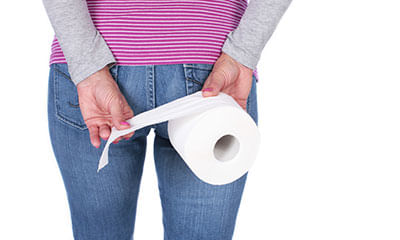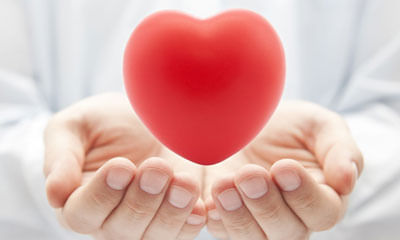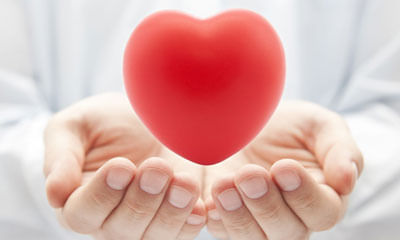Medicine For Aortic Valve Disease
There is calcification in my aortic valve with levs 62% but the black symptoms are nil. Suggest me some homeopathic medi ...
Ask Free Question
You should not take any medicine without doctor's advice as it may be harmful. Let's connect over a call so that we can discuss your concern in details and make a treatment plan for you.
I am 45 years of age male with left ventricular hypertrophy. What medicine is advisable for treatment. ...
Ask Free Question
Dear thanks for contacting with your health query, and after reviewing the same, i'm of the following opinion: 1. High blood pressure and heart valve stenosis are the common cause of cardiac hypertrophy so make sure your blood pressure remains within desired value and regular follow up and supervision with cardiologist is necessary. Ps. Since nicotine smoking is one provoking/aggravating factor for lvh thus you have to completely give up on the addiction. [if present] 2. As left ventricular hypertrophy [lvh] progresses, you may experience: shortness of breath. Fatigue, chest pain. Palpitations, dizziness or fainting. Keep a watch over these symptoms and consult your doctor immediately in case such symptoms appear. 3. Lvh may be a factor in determining treatment or diagnosis for other conditions like ihd ischemic heart disease, aortic stenosis, systemic hypertension, cardiomyopathy, hyperdynamic circulation. 4. Please consult with a cardiologist who will work up the case for further follow-up and management. 5. Echo will help in determining the type of lvh: concentric or eccentric. 6. Diet: salt restricted diet. Maintain ideal body weight. Limit alcohol to moderation and quit smoking. 30 minutes of active physical exercise [avoid which raises blood pressure]. Eat fresh fruits and vegetables.
I have piles it doesn't pain nor it bleeds often. Mayb 1ces o 2 times in a month that to if I strain really hard. Or els ...
Ask Free Question
First of all never decide to anal surgery, your anus grip can be loose after surgery & it takes too much time to heal the anus wound, by that time you will also suffer pain and trouble and piles may occur again after surgery, many piles medicines are available in the market but it gives you temporary relief only or you will feel that you are absolutely fine, before treatment anal endoscopy (examination) is must, only ayurvedic kshara sutra therapy or kshar karma is a unique ancient technique, which is proved to be an effective treatment of anorectal disorders. It is commonly recommended in patients suffering from piles. According to world health organisation (who), kshar sutra therapy is better than any modern surgery for piles & fistula. This is nonsurgical procedure so no need of hospitalization or bed rest, piles disease will never be again in life, we will provide you demo video for the treatment procedure, we also provide piles care treatment kit for our distant patients, we deliver all over india, please contact us for more details at sushruta clinic, new delhi-45.
Where can I get treatment of my Aorta arteritis disease, and can it be treated by medicines? Without any invasive interv ...
Ask Free Question
Prednisolone or Few immuno suppressive drug can be given but with a lot of side effects at 73 years of age and hence it’s better to go for stenting if possible or go for bypass surgery only if the cardiac surgeon is confident about the outcome.
My son is 2 years old and he has aortic valve mild thickening with calcification. How it can be treated? Can it be cured ...
Ask Free Question
Bronchiolitis is simply an inflammation of bronchioles. It's mostly allergic. If not settling with treatment has to be evaluated.
Hello doctor I got diagnosed with moderate aortic stenosis with mean gradient 28 mm hg and peak gradient 54 mm hg with m ...
Ask Free Question
The aorta is the main artery that carries blood out of the heart to the rest of the body. Blood flows out of the heart and into the aorta through the aortic valve. In aortic stenosis, the aortic valve does not open fully. This decreases blood flow from the heart. Aortic stenosis is a heart valve disorder that narrows or obstructs the aortic valve opening. Narrowing of the aortic valve prevents the valve from opening properly and obstructs the flow of blood from the left ventricle to the aorta. This can reduce the amount of blood that flows forward to the body. Causes As the aortic valve narrows, the left ventricle has to work harder to pump blood out through the valve. To do this extra work, the muscles in the ventricle walls become thicker. This can lead to chest pain. As the pressure continues to rise, blood may back up into the lungs. Severe aortic stenosis can limit the amount of blood that reaches the brain and the rest of the body. Aortic stenosis may be present from birth (congenital), but most often it develops later in life. Children with aortic stenosis may have other conditions present from birth. Aortic stenosis mainly occurs due to the buildup of calcium deposits that narrow the valve. This is called calcific aortic stenosis. The problem mostly affects older people. Calcium buildup of the valve happens sooner in people who are born with abnormal aortic or bicuspid valves. In rare cases, calcium buildup can develop more quickly when a person has received chest radiation (such as for cancer treatment). Another cause is rheumatic fever. This condition can develop after strep throat or scarlet fever. Valve problems do not develop for 5 to 10 years or longer after rheumatic fever occurs. Rheumatic fever is becoming rarer in the United States. Aortic stenosis occurs in about 2% of people over 65 years of age. It occurs more often in men than in women. Symptoms Most people with aortic stenosis do not develop symptoms until the disease is advanced. The diagnosis may have been made when the health care provider heard a heart murmur and performed tests. Symptoms of aortic stenosis include: Chest discomfort: The chest pain may get worse with activity and reach into the arm, neck, or jaw. The chest may also feel tight or squeezed. Cough, possibly bloody. Breathing problems when exercising. Becoming easily tired. Feeling the heartbeat (palpitations). Fainting, weakness, or dizziness with activity. In infants and children, symptoms include: Becoming easily tired with exertion (in mild cases) Failure to gain weight Poor feeding Serious breathing problems that develop within days or weeks of birth (in severe cases) Children with mild or moderate aortic stenosis may get worse as they get older. They are also at risk for a heart infection called bacterial endocarditis. Exams and Tests A heart murmur, click, or other abnormal sound is almost always heard through a stethoscope. The provider may be able to feel a vibration or movement when placing a hand over the heart. There may be a faint pulse or changes in the quality of the pulse in the neck. Blood pressure may be low. Aortic stenosis is most often detected and then followed using a test called a transthoracic echocardiogram (TTE). The following tests may also be performed: ECG Exercise stress testing Left cardiac catheterization MRI of the heart Transesophageal echocardiogram (TEE) Treatment Regular checkups by a provider may be all that is needed if your symptoms are not severe. The provider should ask about your health history, do a physical exam, and perform an echocardiogram. People with severe aortic stenosis may be told not to play competitive sports, even if they have no symptoms. If symptoms do occur, strenuous activity must often be limited. Medicines are used to treat symptoms of heart failure or abnormal heart rhythms (most commonly atrial fibrillation). These include diuretics (water pills), nitrates, and beta-blockers. High blood pressure should also be treated. If aortic stenosis is severe, this treatment must be done carefully so blood pressure does not drop too far. In the past, most people with heart valve problems were given antibiotics before dental work or a procedure such as colonoscopy. The antibiotics were given to prevent an infection of the damaged heart. However, antibiotics are now used much less often before dental work and other procedures. Check with your health care provider to find out whether you need antibiotics. People with this and other heart conditions should stop smoking and be tested for high cholesterol. Surgery to repair or replace the valve is often done for adults or children who develop symptoms. Even if symptoms are not very bad, the doctor may recommend surgery based on test results. A less invasive procedure called balloon valvuloplasty may be done instead of or before surgery. A balloon is placed into an artery in the groin, threaded to the heart, placed across the valve, and inflated. However, narrowing often occurs again after this procedure. A newer procedure done at the same time as valvuloplasty can implant an artificial valve. This procedure is most often done in patients who cannot have surgery, but it is becoming more common. Some children may need aortic valve repair or replacement. Children with mild aortic stenosis may be able to take part in most activities. Outlook (Prognosis) The outcome varies. The disorder may be mild and not produce symptoms. Over time, the aortic valve may become narrower. This may result in more severe heart problems such as: Atrial fibrillation and atrial flutter Blood clots to the brain (stroke), intestines, kidneys, or other areas Fainting spells (syncope) Heart failure High blood pressure in the arteries of the lungs (pulmonary hypertension) The results of aortic valve replacement are often excellent. To get the best treatment, go to a center that regularly performs this type of surgery.
I am a 44 year male. Weight 73 kg. My blood pressure is 140/100 but my pulse rare is 58. Serum cholesterol 236, triglyce ...
Ask Free Question
Hello, Your BP is abnormal, tryglisride is within normal range, hdl is almost normal, ldl is at higher range. Cholesterol is at boarder line. Diostolic dysfunction affects mitiral inflow needs to follow the under lined natural norms: Go for meditation to reduce stress and to nourish your body to check diostolic dysfunction. Tk, plenty of water to hydrate your body. Your intake should be easily digestible low in fats & oil to minimise cholesterol. Go for a walk in the morning to reduce tryglisride & ldl level. Tk, apples, almonds, walnuts, Amla, garlic. Tk Homoeopathic medicine:@ Arjuna Q-10 drops, thrice with little water. Avoid junkfood, Alcohol& nicotine. Tk, care.
Sir I had heart operation for replacement aortic valve change. I am take warfarin daily also I have take some medicine f ...
Ask Free Question
As per your concern I would suggest you to do following remedy 1. Boil a handful of drumstick flowers in 1 glass of milk 2. Drink it when lukewarm 3. Sip it every day for 1-2 months This is a good tonic to overcome sexual debility Causes: ⢠Old age ⢠Injury ⢠Stress ⢠Addiction to nicotine ⢠Consuming alcohol ⢠Drug abuse ⢠Can be a side effect of medical conditions like: o Diabetes o High cholesterol o Depression o Heart diseases o Other psychiatric diseases it will surely help you.
My son is 1 month old. He has bicuspid aortic valve, Mild AS with normal biventricular function. Actually what is the re ...
Ask Free Question
No this is not the reason. It is a very common congenital disease that is found in children. So don't blame yourself for it.






